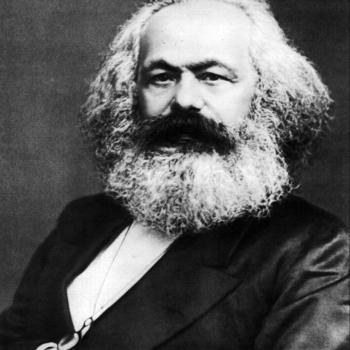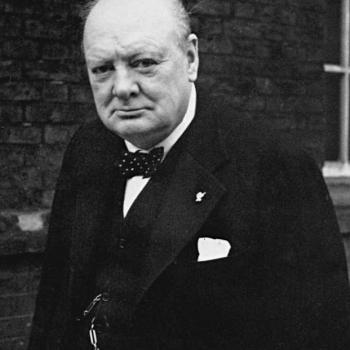Disagreement I can deal with. As a scholar of political philosophy and its history, you can say that I’m in the disagreement business. But what I still find a bit frustrating is not to be able to agree on just what it is we are disagreeing about.
So it is with recent discussions of the question of “secularism” as concerns “Mormon studies.” To be sure I have occasionally used the term “secular” as a shorthand to name arguments I have made (rather carefully, I dare claim, and based upon cited textual evidence) to show certain risks involved in the enthusiastic embrace by Mormons of non-Mormon “Mormon studies.” But some, purporting to respond to me, have responded just to the word “secularism” – which I am supposed to fear, and they, not – while conveniently ignoring my argument as well as my textual evidence. It is manifestly easier to refute a wholesale fear of “secularism” (widened to mean any belief or position not fully in accord with the Restored Gospel) than it is actually to attend to my argument about a specific intellectual position which is specifically represented, for example, in articles I specifically quoted from journals published by the Maxwell Institute. Specifically. I don’t know whether to celebrate or bemoan the fact that these arguments remain, not only unrefuted, but completely unaddressed. I will assume until further notice, then, that they are unanswerable. But I reserve the right to continue to call attention to the fact that these arguments have not been answered.
David Bokovoy has recently made a worthy, even-tempered and good-faith effort to find consensus, reconcile differences, and cool the rhetoric surrounding a real or supposed division between “apologetics” and “Mormon studies,” especially as this concerns the reformation of BYU’s Maxwell Institute. Reading him helps me see more clearly how some smart and faithful LDS might come at certain questions very differently from other smart and faithful LDS. Sometimes the disagreement is less substantive than a rhetorical matter: sometimes it is a question of what audience one is addressing and in what circumstances. And the question of audience is bound up with the question of friendship, or personal connections, not to say tribal loyalties: we all have such loyalties and we tend to pick up a problem with a certain handle, depending on who we imagine is listening, whom we’re caring about immediately as we write, etc. So this is good to keep in mind, and I certainly welcome a plurality (not to say an infinite diversity) of rhetorical approaches to enlarging our hearts and minds and to building the Kingdom.
I am not, sure, though, how it serves Brother Bokovoy’s intended audience, or any other, to construe “secularism” simplistically to mean, essentially: whatever is not comfortably within orthodox LDS teaching and therefore is experienced as fearsome and threatening by those who are “conservative.” Brother Bokovoy seems to be trying to be even-handed by following a “philosopher’s” definition of political ideologies or tendencies: Progressives, he writes, are ready to “evolve and adapt,” whereas conservatives are “threatened by change.” Since everyone who has thought about the matter at all (including Edmund Burke, arguably the founder of “conservatism”) understands that individuals and communities must “evolve and adapt” (in some ways to some things), then the implication is clear that conservatives are narrow, brittle, unreasonable, driven mainly by irrational fears, and thus ill-equipped to confront the exigencies and the opportunities of the emerging world. A more charitable view of a “conservative” position would have to say something about things that are judged on balance to be worth conserving, and about strategies for conserving such goods while evolving and adapting where such evolution is rationally judged to be necessary and/or beneficial. But for Brother Bokovoy, it is simpler to reduce the question to one between those who are rationally adaptable and those who are irrationally fearful.
So, once the teams or tribes have been divided up in this way, it is not hard to choose the worthier side.
The good guys are open to historical facts. They have read some history and know that Joseph Smith was married to many women. This they seem to have learned from “secular” history, and so secularism is a good thing, because it taught us this true fact.
The bad guys, apparently (I don’t know who this could be, but they must be quite a force, because the internet is rife with arguments straining to keep them at bay and to suppress their influence) do not like such “secular” history and do not want to accept such facts.
The good guys are open-minded and open-hearted. They will take a non-LDS (“secular”) historian to lunch, and maybe even share a dessert, if not a coffee. (Maybe a coffee-laden dessert! Wouldn’t that be expansive!) They, like Joseph Smith, are ready to find Truth wherever it lies, and there’s every chance some of it might lie with the nice “secular” scholar across the table.
The bad guys would of course be too fearful to risk such a lunch. And even if they were foolhardy enough to brave the risk, what would they have to say to a “secular” interlocutor, since they cling to the orthodox reading of scriptures and prophets and are little interested in anything else – except, that is, when they turn to the search for ancient evidence? These narrow souls would have nothing to talk about except to be hell-bent on converting any prospect to their own rather confined and non-evolving views, with only stylometrics and repentance to deploy in preaching to the heathen.
As I say, this is a rather convenient mapping of the difference between “progressives” and “conservatives.” I guess I have to accept being counted among the “conservatives,” since my repeated efforts to join the “progressives” (studying political philosophy – some very “secular” political philosophy – at Harvard, writing articles and books that address the reason/revelation question and take a position in favor of “the responsibility of reason,” of all things, and maintaining various philosophical friendships and ongoing conversations over the years with many non-Mormon scholars and philosophers – even, perhaps, an atheist or two!) have not been deemed by that particular tribe to qualify me for inclusion. So, since these categories (Progressive/Conservative) seem to be exhaustive, I really am left without a choice but to be considered narrowly fearful of any engagement with anything but the simplest orthodoxy.
But even if I am not qualified to count among the reasonable and open-minded tribe of Progressives, I wonder if I could persuade David or any of that affiliation actually to read a little something of what I have written. Again, I do not expect that he will agree with me, but it would be satisfying at least for us to agree on just what it is we are disagreeing about. I will continue to give evidence of my reading him closely, and I invite him to return the favor.
[To be continued – with examples illustrating my specific concern with “secularism.” Specifically.]












